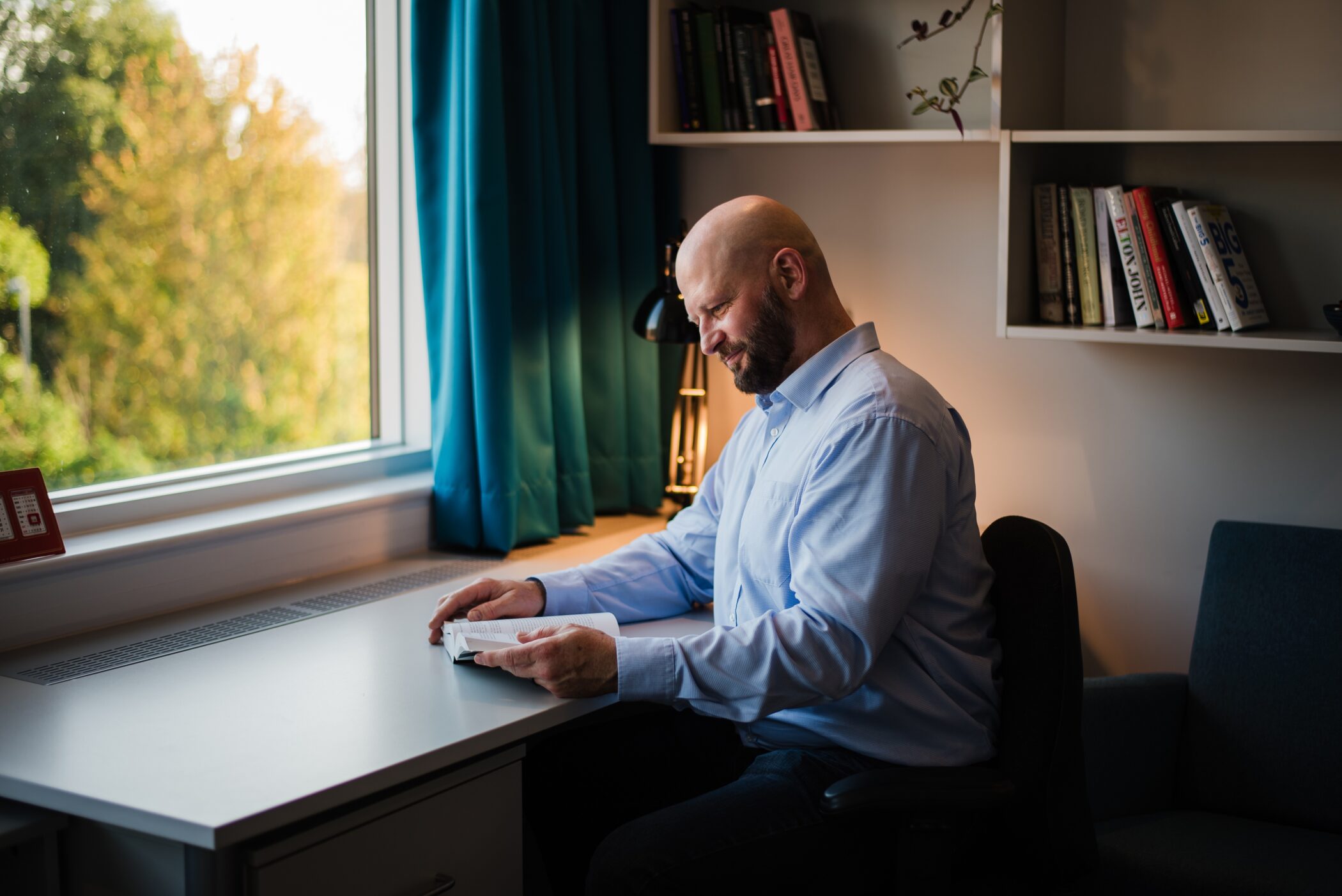Studying Law at Cambridge
- UCAS Code: M100
- Number of students per year: 7-12
- How many are admitted to Cambridge every year: 230
- Minimum offer: A*AA
- Essential subjects: None
- Useful subjects: English (Literature or Language), History, Language (ancient or modern)
Law has been taught at the University of Cambridge since the 13th Century and the Faculty has been rated the best in the UK in several publications in 2025 including the Guardian University Guide. The course is taught by over 80 different faculty members, all experts in their fields. The Faculty of Law enables all who come here to work to carry out their research and learning in an atmosphere of collegiality and intellectual challenge.
What can I do with a degree in Law?
89% of University of Cambridge Law graduates are in employment within 6 months of graduation. Many people who study Law at University do so because they want to become practising lawyers. However, Law is a legitimate subject for academic study even if you definitely do not want to become a lawyer, or think that you may not become a practising lawyer. That is because the study of Law at University is not a vocational subject; it is an academic subject and an intellectual discipline.
Becoming a solicitor
If you want to qualify as a solicitor in England and Wales you will need to sit two Solicitors Qualifying Examinations (SQE1 & SQE2) after you complete this course. For more information visit the Solicitors Regulation Authority website.
Becoming a barrister
If you want to qualify as a barrister in England and Wales, your undergraduate degree will satisfy the academic component of training for this if you study the following papers throughout the course:
- Criminal Law
- Law of Tort
- Constitutional Law
- Land Law
- Contract Law
- Equity
- European Union Law
You can then study vocational courses that lead to professional accreditation. For more information about qualifying as a barrister visit the Bar Standards Board website.
For more information, please visit the University Careers Service website.

Studying Law at St Edmund’s College
St Edmund’s admits a large group of undergraduate Law students as well as a large number of postgraduate students to the Master of Law and Master of Corporate Law degrees every year. We have several fellows who are involved in teaching and research in Law at the University. This makes for a ready-made community to discuss subject content over lunch in the dining hall or over coffee in Edspresso, our on-site café.
We have an active and friendly College Law Society which invites speakers six to eight times each year, as well as training students for mooting; there is also an annual Christmas Lunch and Summer Party for Law students.
St Edmund’s maintains strong links with former students, including an annual Law Event for current and former Law students.
The college offers several spaces where you can study and work on your essays including the Paul Luzio Library building, the Norfolk Library, study desks in the Mount Pleasant Halls Common room, the comfortable couches of the CR, in Edspresso or the benches in our lovely apple orchards!
We also have six study rooms (2 in the Luzio building, 2 in Norfolk building, and 1 in Mount Pleasant Halls), where college supervisions typically take place, and which can also be booked by students for their private study time or group projects.
Our college also has an extremely supportive Welfare and Wellbeing Department, which is happy to lend an ear and provide support should a student feel anxious or overwhelmed with the academic year.
How to Apply
Applications for all courses are made through UCAS. You must apply by 15 October 2025 to be considered for entry in October 2026.
We accept applications for Law in both the October application round and the January application round. The January application round is specifically for candidates applying for certain subjects at the three mature Colleges at Cambridge (Hughes Hall, Wolfson, and St Edmund’s). The January round is particularly suited to those applicants taking one-year courses who may not have covered enough of the course content to apply in October, but are able to make a competitive application by January. The deadline for applications is 14 January 2026 for 2026 entry.
Requirements
Written work
Tests
Interviews
Deferred entry
Affiliated students
What is a typical Term’s work
Every student’s experience of Cambridge will be different, owing to the huge range of opportunities and activities on offer. Typically, however, a Law student’s study time will be divided between:
- Attending lectures (8-11 hours per week in the first year)
- Attending supervisions (2 hours per week in the first year)
- Studying privately and in informal groups, to prepare for supervisions
People
- Dr Matthew Psycharis, Director of Studies of Law
- Mr Andrea Peripoli, College Teaching Officer in Law
- Dr Sandra Brunnegger, Fellow in Law and Anthropology
- Ms Fiona Costello Tutor, Research Associate, Faculty of Law
- Catherine Dobson, Barrister, Supervisor in Constitutional Law, Faculty of Law
- Professor Sandesh Sivakumaran, Professor of International Law, co-Deputy Director of the Lauterpacht Centre for International Law
- Dr Sean Butler, Director, Cambridge Centre for Animal Rights Law


